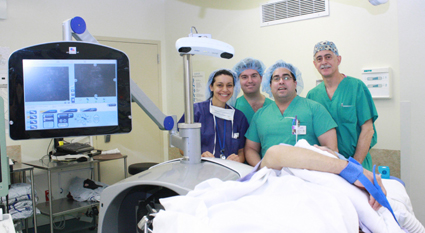NY Methodist Hospital Offers Advanced Kidney Stone Treatment

Anyone who has experienced a kidney stone knows how uncomfortable it can be. While kidney stones can develop from a variety of causes — dehydration, urinary tract infections, a hyperactive thyroid — most people with a kidney stone are concerned about just one thing: making it go away.
Luckily, there have recently been advances in the treatment of kidney stones. New York Methodist Hospital (NYM) offers the most advanced technologies for their removal and eradication.
Kidney stones are solid masses of tiny crystals that form in the kidneys and can block the flow of urine, resulting in pain, bleeding or kidney damage. If the kidney stone is 1 centimeter or smaller, it may pass out of the urinary system on its own. To help the stone pass, a doctor will most likely prescribe plenty of water — at least three quarts a day — and a pain medication, to ease the process. Once the stone passes through the body, the doctor may arrange for a laboratory analysis. If it is found to be a calcium oxalate stone, the doctor may prescribe a drug that prevents kidney stone recurrences by decreasing the excretion of calcium into the urine.